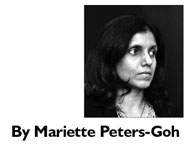 After several years of dialogue, debate and deliberation, the amendments to the Malaysian Legal Profession Act 1976 have finally come into force, taking effect from June 3rd, 2014. The Legal Profession Act was amended to include provisions regarding international partnerships, qualified foreign law firms and registration of foreign lawyers in Malaysia. In this article we examine the methods in which legal services in Malaysia have been liberalised. As a result of the amendments, there are now three entry routes into Malaysia for foreign law firms and foreign lawyers, namely, via (a) international partnerships (IP), which is a joint venture between a foreign law firm and a Malaysian law firm; (b) qualified foreign law firms (QFLF), in which a foreign firm may be licensed to operate in Malaysia on a stand-alone basis; and (c) the employment of a foreign lawyer by a Malaysian law firm. IPs, QFLFs and foreign lawyers in Malaysian firms will be regulated by the Malaysian Bar Council (BC). A Selection Committee will make recommendations to the BC in granting such licenses. The Selection Committee, which is established by the amendments to the Legal Profession Act, will consist of five members, two of whom are the Attorney General of Malaysia and the President of the Malaysian Bar. The Selection Committee will be responsible for considering all applications, and for making recommendations for approval to the Bar Council. The Bar Council will serve as the Secretariat for the Selection Committee. Licences and regulations Permitted practice areas Equity and employment Although an IP is entitled to bill its client as a single law firm and recover costs and retain payments in respect of such practice, it is the recommendation of the Bar Council that voting rights of an IP should be split 60:40 in favour of the Malaysian firm. As regards a QFLF, the number of Malaysian lawyers shall not be less than 30 percent of the total number of lawyers in that firm, and that the foreign lawyers will have to be resident in Malaysia for 182 days. It is suggested that only a maximum of five QFLF licenses should be granted to foreign law firms with expertise that is established in international Islamic finance, and which would be able to support and contribute to the Malaysian government’s Malaysian International Islamic Finance Centre (MIFC). In relation to foreign lawyers employed by a Malaysian firm, the number shall not be more than 30 percent of the total number of lawyers in that firm. ‘Fly-in – fly-out’ Conclusion |
ZUL RAFIQUE & partners
D3-3-8 Solaris Dutamas
No 1 Jalan Dutamas 1
50480 Kuala Lumpur, Malaysia
Tel: (60) 3 6209 8228
Fax: (60) 3 6209 8221
Email: mariette.peters@zulrafique.com.my
Website: www.zulrafique.com.my

